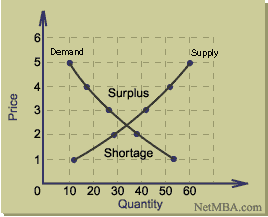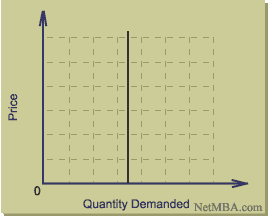Minimum Wage
Brad Hicks of Livejournal has a post today regarding a minimum wage initiative in Missouri. He defends it with the usual rhetoric we'd expect from someone who writes glowing paeans to FDR:
The statement, which you have already heard and will hear again, that "raising the minimum wage raises the unemployment rate, by making businesses lay off those who aren't worth the extra money" is not a proven fact. It is, at best, a hypothesis. During the stagflation of the 1970s, back when Republicans were arguing that the US economy was in the toilet, not because of Vietnam-era runaway deficits and the OPEC oil embargo but because, thanks to the unions, the middle and working classes had it too good, it even became a popular theory. But until you test a theory, it remains only a theory. And the theory that raising the minimum wage causes increased unemployment has been tested. Repeatedly. The minimum wage has risen 26 times since it was first introduced back in 1938. And none of those times did it result in increased unemployment. Not one. On the contrary, we have seen substantial periods of rising unemployment twice in the last several decades. Both of them coincided with long gaps between raises in the minimum wage, from 1981 to 1990 and from 1997 to the present.
The minimum wage is one of those examples that pains honest economists, because the evidence against its benefits is so simple and the statistics marshalled in its defense so complex. We labor on regardless.
When Brad says that the correlation between minimum wages and unemployment is "at best" a hypothesis, he is wrong. Consider a supply and demand graph, familiar to any student of economics. Label the vertical graph "Price of Labor" and the horizontal "Supply of Labor." Find the point where the two curves intersect.

Now draw a horizontal line above the equilibrium. That is the effect of a minimum wage - an artificial "price floor," forbidding any business to charge a price for labor beneath it. If we raise the price from $2.30 (the equilibrium) to $3.00, then the supply of labor now outstrips the demand for labor. This results in labor shortages or, as the papers call it, unemployment.
To say that a minimum wage will not cause unemployment, one or more of the following must be true:
- The price is already well below its equilibrium, and this price floor will raise the price of labor to that level. This would mean that the demand for labor is outstripping the supply - that there are more open jobs then there are job seekers. In this thought experiment, the unemployed are idle dreamers who must be coaxed out of unemployment by the tempting offer of a higher wage. This strikes us as patently false; we list it simply for the sake of completeness.
- The demand curve for labor is so inelastic that a change in price will not significantly affect the quantity of labor demanded. Elasticity is the extent to which a change in price results in a change in demand. A sharper change means a greater elasticity.
Below is an example of a perfectly inelastic demand curve.
Examples of goods with inelastic demands include cigarettes and gasoline - it takes a great change in price to produce a small change in demand. State governments have taken advantage of this datum to level significant taxes on both products, claiming an inexhaustible source of revenue.
Obviously, the demand curve for labor cannot be perfectly inelastic, or none of us could ever be fired. However, we'd be willing to entertain the argument that headcount is fairly static for large businesses. The investment of capital and machinery requires some minimum number of persons x to operate it and a cost-efficient business would be operating as close to that minimum as possible already. If the jobs need to be filled, would this business fire a handful of people should the minimum wage rise?
A possible argument, though we've never heard anyone other than ourselves make it. - The few people that the minimum wage fires are masked by an increase in spending from the bottom tier's now-higher wages, which leads to an increase in business revenues, which leads to expanded investment, growth and the hiring of more workers. This is the Keynesian money multiplier. While we could devote a week's worth of webjournal posts to debunking Keynes, we'll simply say for now that we don't find the idea that one dollar can be counted as ten if spent by the Department of Labor to be compelling.
- The theory of supply and demand is a lie.
In short, if the minimum wage does not cause unemployment, it falls to those who argue for the minimum wage to explain why. The idea that a price floor does not result in a shortage contradicts the foundation of modern economics. Progressives will cite statistics, as Brad does, but a statistic is not an argument. It is at best support for an argument - an argument we have yet to hear.
Can we think of reasons why the minimum wage might cause people to lose their jobs, yet this change is not reflected in the statistics? Yes.
Here's one hypothesis: The businesses hit hardest by minimum wage increases are the smallest of small businesses. Larger businesses, like Target, Sears or WalMart (which actually pays significantly more than the national minimum wage on average), can defray the added costs more easily. So a raise in the minimum wage transfers workers from mom-and-pop stores to Big Box corporate warehouses. Huzzah for big business! If progressives are sabotaging one of their cherished goals in service of another, that's their kitty to mind, of course.
But above all else, the argument for the minimum wage fails on one simple, praxeological level. It presumes that a government agency - any agency - knows the cost of running a business better than the business itself. The most casual audit of Department of Defense expenditures, or the cost of rebuilding your county courthouse, should lay that myth to rest.

0 Comments:
Post a Comment
<< Home